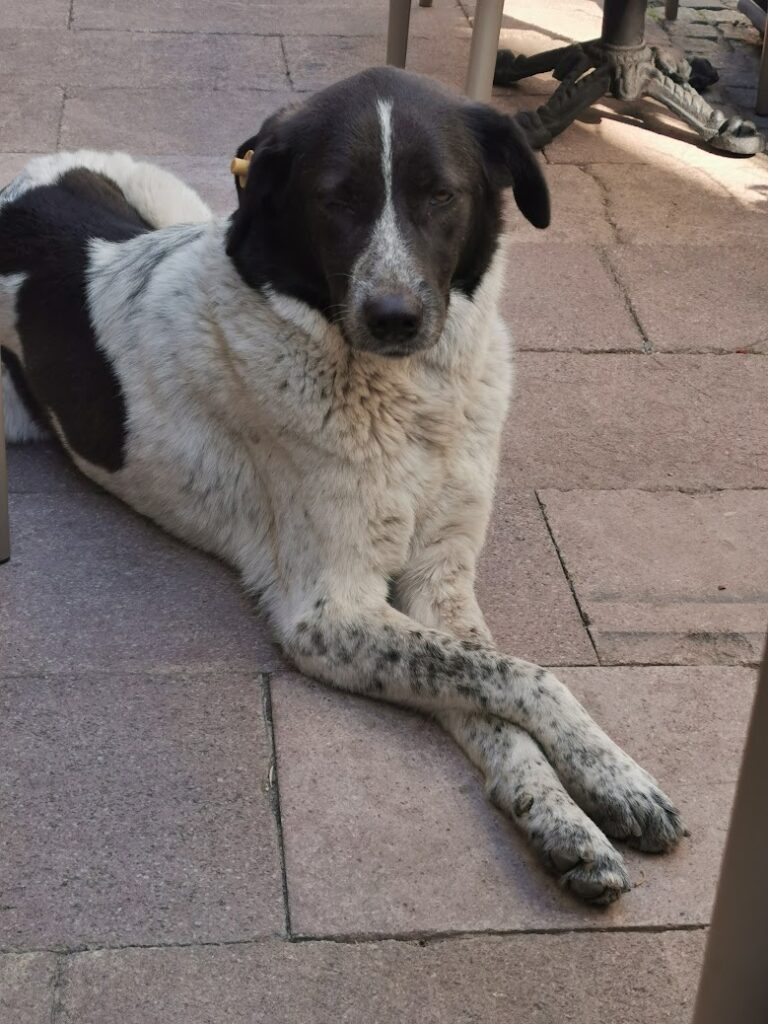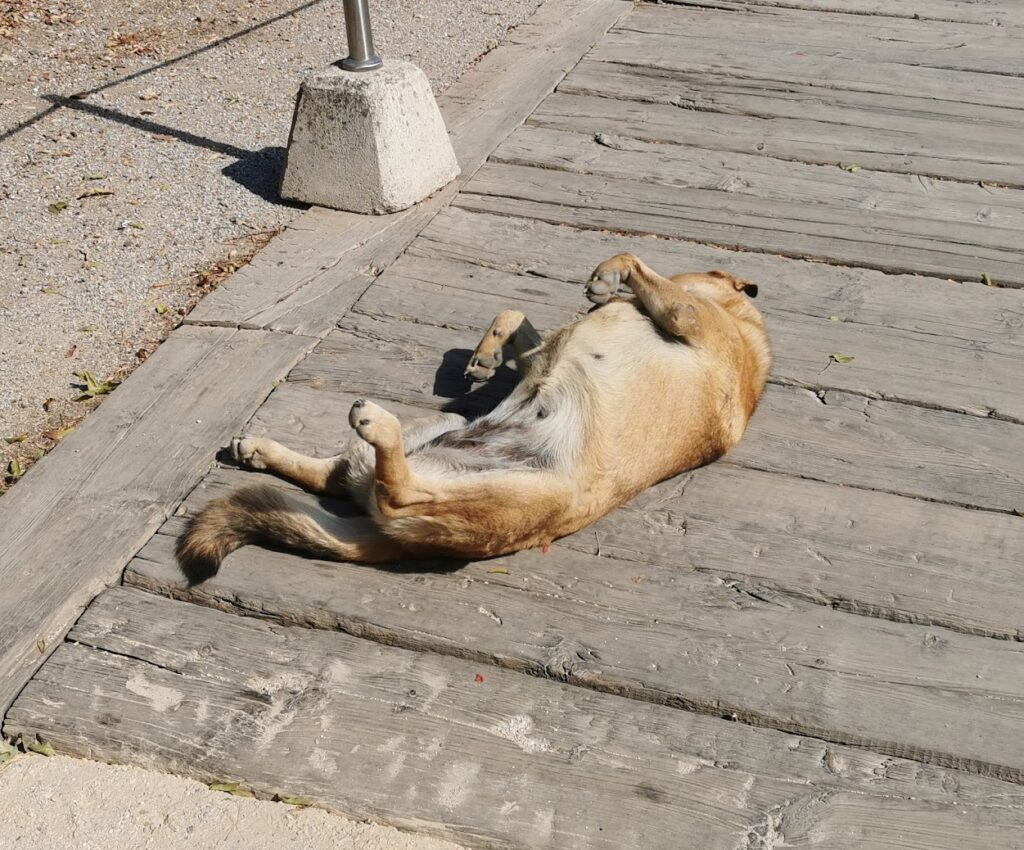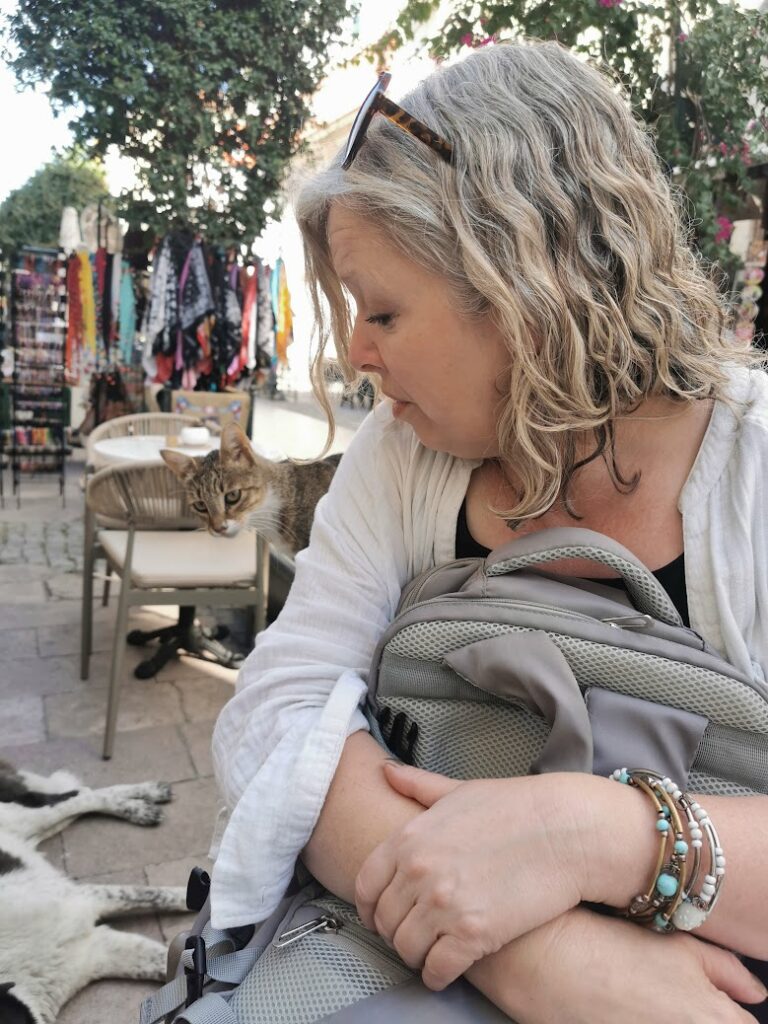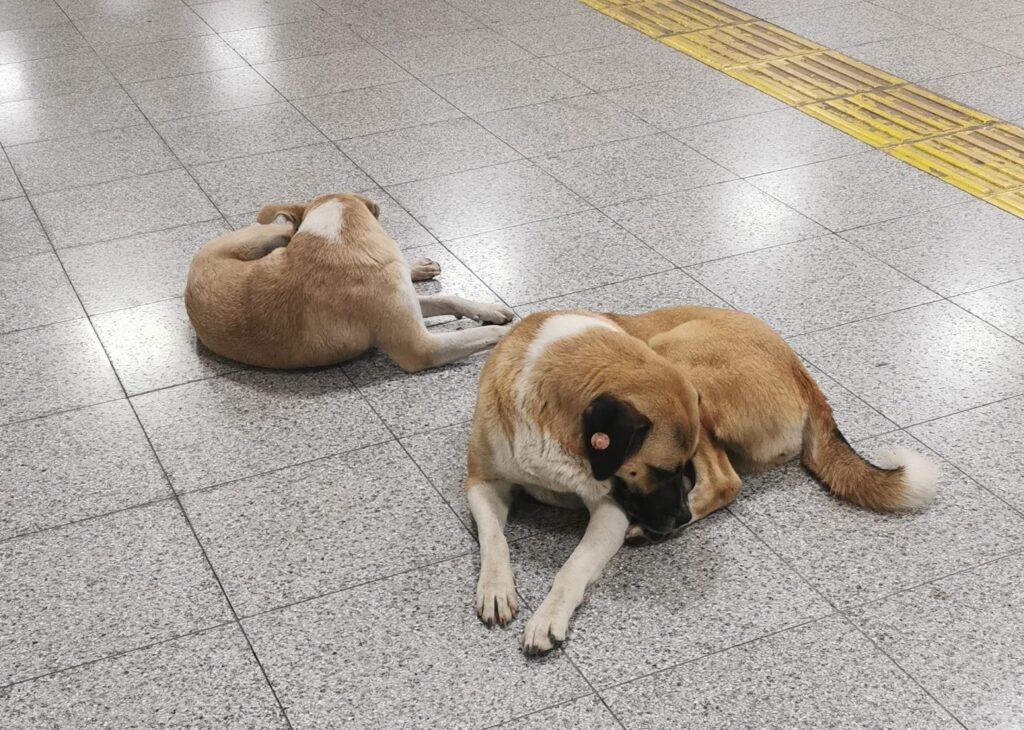Street Dogs & Cats of Selcuk
When you think of street dogs or cats, images of manky, starving, flea-infested abused animals aren’t far away. A recent trip to Selcuk, Turkey in October 2024, led to me questioning the quality of life dogs have back here in the UK .
One of the first things you notice about Selcuk street animals is how well looked after they appear. Secondly, you’ll notice how friendly and affectionate they are. Lastly, you’ll notice that many of the dogs have tags in their ears, indicating they have been vaccinated and neutered before being release back on to the streets.

They roam the streets freely and are fed by different people and restaurants across the city. Most people, including tourists cant resist giving them any spare food from their plates. The street dogs seem to be pretty good at crossing even the busiest of roads, and drivers give way to them. Even dogs and cats seem to get on with each other. Dogs are generally a little wary of the cats but seeing the two species cuddle each other wasn’t uncommon. Some dogs have names and are known across Selcuk, with restaurant owners calling them over if they have some left over food. The dogs are cleaned every day, so unlike the streets of places like Paris, dog poo isn’t a big problem.

In some ways, the streets could be seen as an open-air rehoming centre. You could probably adopt any one of them without any fuss. One of the gallery owners I spoke to says some of the dogs roam the streets during the day but go back to some chosen ‘home’ at night, protecting that space by barking at any unwelcome visitors (including other dogs). It’s an unusual, but apparently harmonious setup. You rarely hear that constant barking you do in places like Spain, partly I suspect the dogs are so tired, well fed and content at the end of the day they just want to sleep. It did make me consider whether the dogs would be happier if they were rehomed. When I consider the lives of dogs in the UK I can’t help feel I’d be happier to be a dog on the streets of Selcuk than permanently on a lead, fed dried food and only walking two or three times a day.

It’s not all happy thoughts thought. Street dogs do form packs as they would naturally do in the wild. Although this is not a large problem in Selcuk, it is in other Turkish cities. Whilst the government did introduce a policy of capturing street dogs, treating any ailments, vaccinating them before release back onto the streets, they didn’t do a good job. Some dogs remained fertile so the numbers continued to increase. The Turkish government has changed their policy now, and the ‘massacre law’ has been introduced. This new law has been widely condemned by the Turkish population, but interestingly, it is much in line with what happens in the UK.
“The new legislation requires municipalities to collect stray dogs and house them in shelters to be vaccinated, neutered and spayed before making them available for adoption. Dogs that are in pain, terminally ill, or pose a health risk to humans will be euthanised.”
When you contrast the dogs on the streets and then consider those same dogs caged in kennels waiting for adoption, I can’t help feel a sense of sadness. Anyone who has been to a rescue centre for dogs will know the rows of sad faces looking at you through the cages. It’s heart-wrenching. Whether the rehoming centre approach will work I don’t know, and I have no idea whether Turkish people will ‘rescue’ the kennelled dogs in the same way we do in the UK. Most dog homes in the UK are overflowing and many do get put to sleep.

On my last day in Turkey we had to get up early to get a train to the airport. Everything was closed yet it didn’t take long before some familiar faces appeared beside us, wanting to play and be cuddled. More and more faces appeared and before long I think we had about 10-15 dogs around us. They were in good spirits and it was moving to see them for the last time. As if to serve as a reminder of the problem the government is trying to solve, they all suddenly dashed off in a pack to try and catch a cat. The cat escaped by running and climbing up a column of an old Roman aqueduct. Cats being cats, it then looked down at the pack with a clear sense of superiority whilst dogs sniffed around wondering how it got away. Had the pack caught the cat I am sure it would not have ended well.
Whilst I reflect upon the week around Selcuk and think about the incredible ruins of Ephesus and Magnesia, the people, the food and the wonderful climate, it is the street dogs and cats of Selcuk that will leave the lasting memory.
In the UK, dogs rarely have much freedom. Most owners prevent them from socialising with other dogs. People are often fearful of dogs, and dogs behave in unpredictable ways. Food comes in packets, often dried, and exercise comes in 30-minute chunks. Owners are often anxious when another dog appears,
